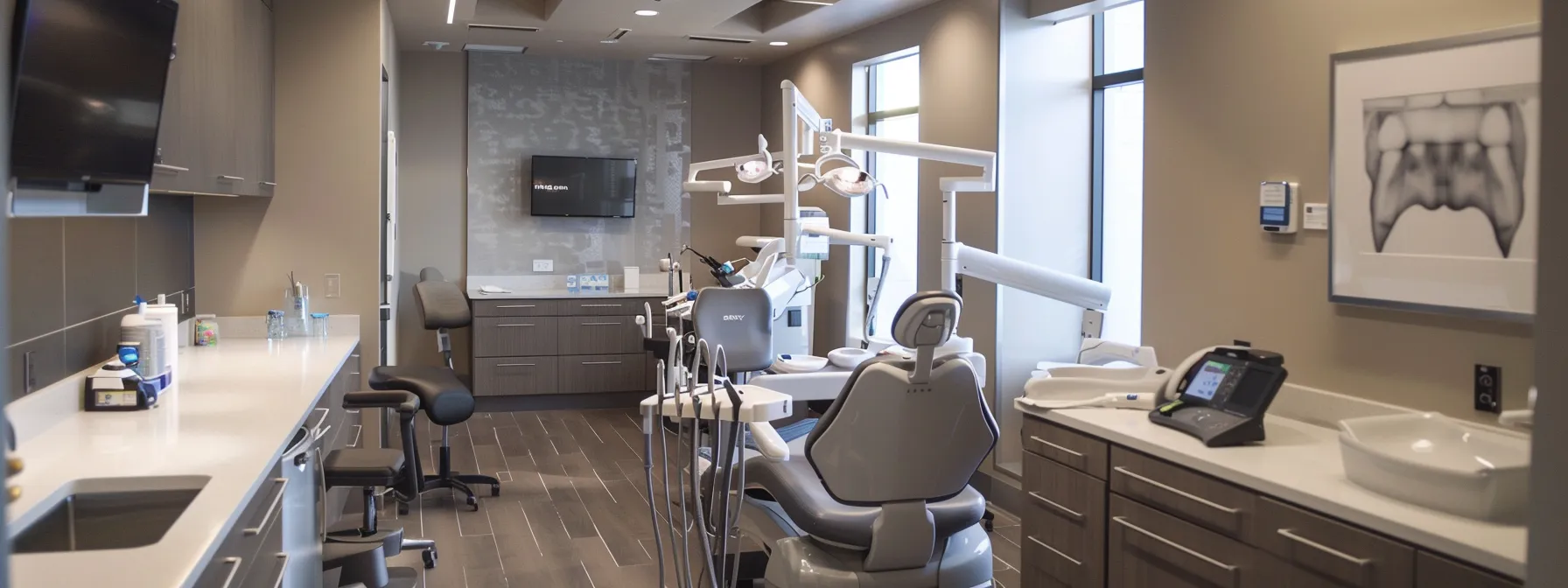Post-surgery care for dental implants is essential for a successful recovery. Many patients worry about what to expect and how to ensure their implants heal properly. This article will outline important post-surgery instructions, provide a recovery timeline, and address common challenges during the healing process. By understanding these key areas, readers will gain confidence in managing their aftercare and enhancing the longevity of their dental implants. Effectively handling these aspects can mean the difference between a smooth healing experience and complications that might arise later. Let’s dive in!
Key Takeaways
- Proper post-surgery care significantly boosts recovery after dental implant procedures
- Maintaining oral hygiene is essential to prevent complications during the healing process
- A soft diet aids in reducing discomfort and supports the healing of implants
- Monitoring for signs of complications can help ensure a successful recovery
- Regular dental check-ups are crucial for long-lasting results following implant surgery
Understanding the Importance of Post-Surgery Care for Dental Implants
Post-surgery care for dental implants is crucial for ensuring a successful recovery. Patients should follow their bosque county dentist‘s instructions carefully, including using gauze to control any bleeding and minimize discomfort. Adhering to these guidelines helps promote healing and reduces the risk of complications.
Term:
Oral hygiene remains essential after dental implant surgery. Patients are often advised to avoid toothpaste immediately after the procedure and instead use a chlorhexidine rinse to keep the surgical area free from harmful bacteria. This liquid antiseptic creates a cleaner environment that supports the healing process.
Another important factor to consider is the impact of habits like smoking on dental implants. Smoking can hinder the healing process and increase the chances of implant failure. Staying away from cigarettes during recovery can significantly improve the outcome of the surgery.
Essential Post Surgery Instructions for Dental Implants

Managing pain and discomfort after dental implant surgery is essential for a smooth recovery. Patients should follow guidelines for oral hygiene, including using a recommended rinse to keep the area clean. Additionally, dietary recommendations play a vital role; gentle foods and beverages, such as ginger ale, can be beneficial while chewing remains minimal during healing. Each of these aspects contributes to the overall success of dental implants.
Managing Pain and Discomfort After Dental Implant Surgery
After dental implant procedures, managing pain and discomfort is essential for a smooth recovery. Patients may find that using a prescribed pain medication at the right dose can help alleviate discomfort, allowing them to focus on healing. It’s also important to avoid aggressive tooth brushing near the surgical site; instead, patients should let saliva aid in gently cleaning the area while being cautious with their tongue to minimize irritation.
Guidelines for Oral Hygiene Post Surgery
For patients recovering from dental implant surgery, maintaining proper oral hygiene is vital. It’s advisable for patients to avoid brushing the surgical site directly, especially around the lip area, as this can disturb the healing process. Instead, gently rinsing with a saline solution can help keep the area clean without causing irritation. Sticking to a balanced nutrition plan, rich in vitamins and minerals, can significantly aid the healing process as well, ensuring the body gets what it needs to recover efficiently.
Dietary Recommendations for the Recovery Period
During the recovery period after dental implant surgery, dietary choices play a significant role in promoting healing. Patients should focus on soft, easy-to-chew foods to avoid any strain on the surgical area, especially around the cheek. It’s wise to steer clear of foods that may lead to nausea, such as greasy or spicy dishes, especially if there is a concern about allergies or sensitivities. Incorporating plenty of liquids, while avoiding drinking through a straw, can help with rinsing the mouth gently without risking any discomfort or complications.
Recovery Timeline Following Dental Implant Surgery
In the first 24 hours after dental implant surgery, patients can expect some bleeding and the effects of local anesthetic to wear off. It’s important to manage discomfort and stay hydrated, especially avoiding food and drinks that upset the stomach. Over the following weeks, as the body begins recovery, adjustments will occur as the prosthesis integrates with the jawbone, marking a key phase in healing from tooth loss.
What to Expect in the First 24 Hours
In the first 24 hours following dental implant surgery, patients can expect some swelling and minor bleeding at the surgical site, which is a normal part of the healing process. It’s advised to keep a pillow elevated under the head while resting to help minimize discomfort and reduce swelling. If nausea occurs, staying hydrated with sips of clear fluids can be helpful, but it’s wise to avoid heavy meals and any vigorous activity that could aggravate the injury or disrupt the sutures.
- Swelling and minor bleeding are common.
- Rest with an elevated pillow to minimize discomfort.
- Avoid heavy meals immediately to prevent nausea.
- Stay hydrated with clear fluids.
- Avoid vigorous activity to protect the surgical site.
Anticipating Changes Over the Following Weeks
Over the following weeks, as healing progresses, patients can look forward to noticeable changes in their dental implant recovery. The process of osseointegration, where the implant fuses with the jawbone, typically takes several months and is essential for the stability of the implant. During this time, patients should avoid using a straw, as suction can disrupt the healing area, and they should be cautious with their toothbrush to ensure they do not irritate the surgical site while cleaning their teeth.
Common Challenges During Recovery From Dental Implants

Identifying signs of complications after dental implant surgery is key to a smooth recovery. Patients might experience changes in taste or discomfort around the abutment, making it vital to manage these issues effectively. Strategies like sticking to a soft diet and using prescribed medication can help ease any challenges during this healing phase. Each of these elements supports a successful outcome.
Identifying Signs of Complications
During the dental implant healing process, patients should be vigilant for signs of complications. Common indicators include persistent bruising, excessive swelling, or any unusual discomfort around the surgical site, which may suggest a potential infection or bacterial presence. If a wound begins to emit foul odors or there is a noticeable increase in pain rather than a decrease, seeking professional advice promptly is essential to ensure a smooth recovery and address any underlying issues effectively.
Strategies to Overcome Post-Operative Challenges
To navigate post-operative challenges after dental implants, patients should focus on a few key strategies. Keeping a close eye on any signs of fever or abnormal heat around the surgical site is important, as these could indicate an infection. Alongside maintaining proper hygiene, sticking to a soft diet and allowing for necessary sedation during recovery can help ease discomfort. Practicing good oral hygiene and staying alert to any unusual symptoms will contribute to a smoother recovery and better overall outcomes.
Long-Term Care and Maintenance of Dental Implants
To keep dental implants healthy, best practices for sustaining oral health are essential. This includes maintaining proper hygiene to reduce risks of tissue inflammation and scheduling regular check-ups, which play a crucial role in early detection of potential problems. Each of these practices supports effective long-term care, ensuring that implants remain stable and comfortable throughout the years.
Best Practices for Sustaining Oral Health
Maintaining good oral health after getting dental implants involves implementing best practices that can prevent issues like tooth decay and discomfort. Regular visits to a dentist specializing in periodontology can help track the health of both the implants and surrounding gums, addressing any potential problems early on. Pairing these check-ups with a healthy diet and sensible physical activity contributes significantly to overall well-being, reducing the risk of pain and enhancing recovery long after the initial surgery.
Regular Check-Ups and Their Importance
Regular check-ups after receiving dental implants are essential for ensuring long-lasting results. These visits help monitor the healing abutment and overall implant health, allowing the dentist to address any concerns promptly. For instance, if a patient experiences discomfort or has questions about the crown fit, the dentist can recommend appropriate solutions, such as pain management options or adjustments to medications like aspirin for better results during recovery.
- Monitoring the healing abutment’s progress
- Ensuring proper fit of the crown
- Addressing any discomfort with precise solutions
Frequently Asked Questions About Post Surgery Care for Dental Implants

Understanding the healing process after dental implant surgery is crucial for a smooth recovery. Patients often wonder, how long does it take for tooth roots to heal? Addressing discomfort is equally important; knowing what medications like antibiotics can help and how to manage pain effectively plays a key role in recovery. Each of these topics will provide practical insights for navigating the post-surgery phase.
How Long Is the Healing Process?
The healing process for dental implants typically spans several months. Initially, patients may experience some pain and pressure as the implants fuse with the jawbone, a process known as osseointegration. During this time, surgeons often recommend soft foods like scrambled eggs to avoid discomfort, while effective pain management strategies are essential to smooth out the recovery journey.
What Can Be Done for Discomfort or Pain Management?
To manage discomfort after dental implant surgery, several effective strategies can be employed. Patients often find relief by using a damp tea bag to apply gentle pressure on the gums, which can assist in controlling bleeding and reducing swelling. Additionally, rinsing with an antiseptic mouthwash as recommended can help keep the area clean and promote healing. It’s also important to follow any pain management prescriptions provided by the dentist, as these medications can significantly ease pressure around the jaw and improve overall comfort during recovery.
Conclusion
Post-surgery care for dental implants is crucial for a successful recovery and long-term health. Patients should prioritize following their dentist’s instructions, practice good oral hygiene, and maintain a soft diet to aid healing. Staying mindful of behaviors like smoking can also significantly impact the success of the procedure. By embracing these care strategies, individuals can enhance their recovery experience and ensure their dental implants remain stable and functional for years to come.
At Dynamic Family Dentistry, we believe a confident smile is invaluable. Achieving a whiter smile doesn’t have to be complicated or out of reach. That’s why we offer effective, tailored whitening treatments designed to fit your needs. And if you’re interested in additional treatments like Invisalign, we’re happy to discuss costs and options to help you make the best choice for your smile.
Here’s how we’ll work with you:
- Consultation: We’ll take the time to assess your needs and discuss your goals.
- Personalized Treatment: We create a plan that fits your lifestyle and preferences.
- Ongoing Support: We’ll guide you every step of the way to ensure you get the results you’re looking for.
Dr. Scott Kennedy and the team at Dynamic Family Dentistry are here to help you achieve the bright, confident smile you’ve always wanted. Book a consultation today to learn more about cosmetic teeth whitening in Clifton, TX, and take the first step toward a radiant smile!
Schedule an Appointment
Dynamic Family Dentistry
302 S. Avenue Q, Clifton, Texas
Related Articles
Dental Implants 101, Cost of Dental Implants, Post-Surgery Care for Dental Implants, The Dental Implant Procedure, The Benefits of Implants, What to Expect with Implant Surgery


